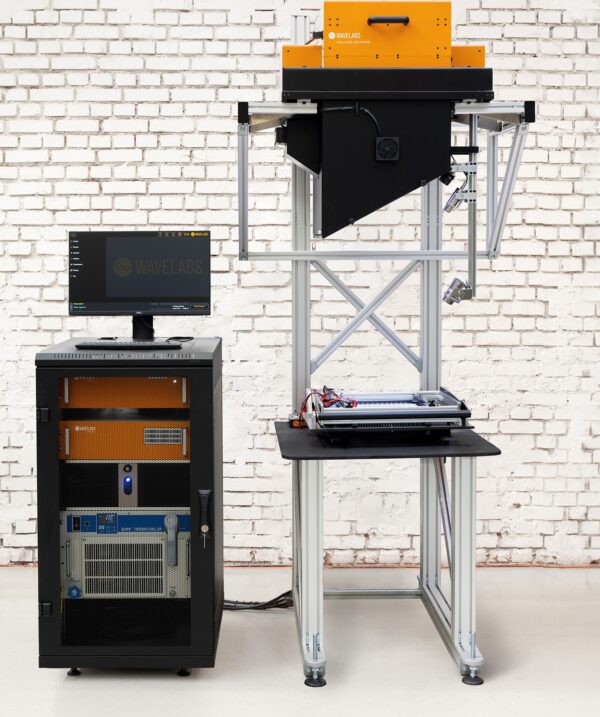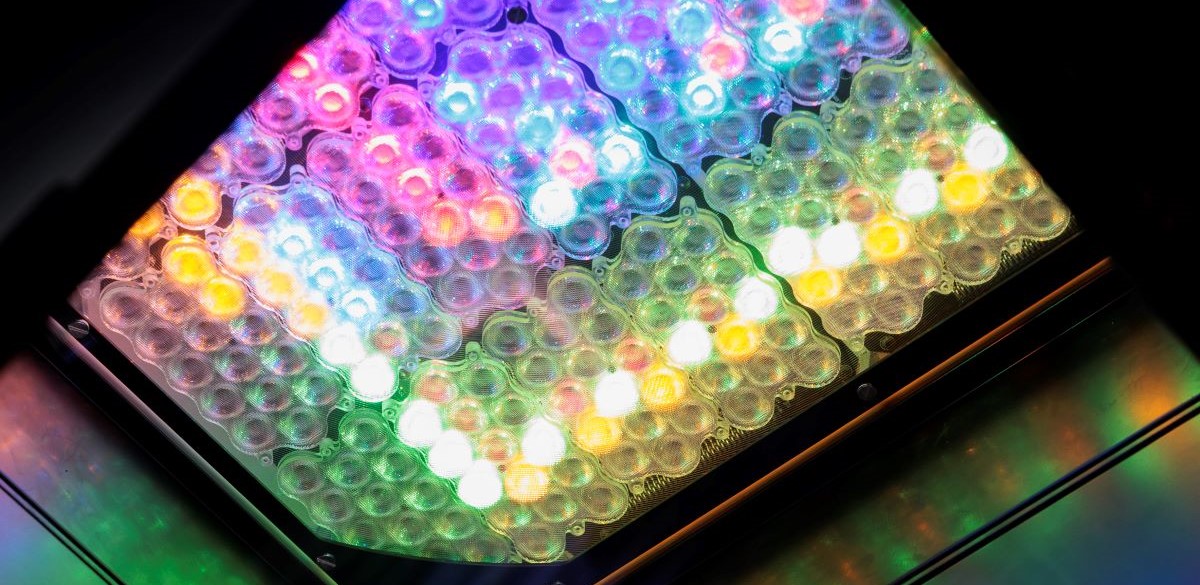Wavelabs, a German manufacturer of testing instruments and solar simulators based on light emitting diodes (LED) unveiled Sinus-430 Advanced made for characterizing thin-film and perovskite mini-modules. It has a customizable spectrum with tunable LED, featuring an illuminated area of 306 mm x 306 mm.
“Our new simulator closes the gap between small-scale cell characterization and module-size research and production,” stated Wavelabs’ project manager Hans-Christian Schaich.
Exposure times are programmable as is continuous illumination. Its light engine is classified A+A+A+, supporting calibration with spectral non-uniformity of less than 1%. Characterization support includes integrated electroluminescence (EL), photoluminescence (PL), synchronized infrared (IR) and external quantum efficiency based on Wavelabs’ Rapidwave-EQE.
The company said the solar simulator is “tandem-ready” with automatic spectrum calibration of 25 different LED channels to allow current mismatch tuning. It also has a built-in spectrometer and intensity sensor with an automated feedback loop to ensure long-term stability of the defined spectrum.
This is the latest product from Wavelabs that addresses the needs of researchers and manufacturers working on newer high-efficiency cell technologies. Last year it unveiled a large industrial-sized and benchtop-sized instruments.

This content is protected by copyright and may not be reused. If you want to cooperate with us and would like to reuse some of our content, please contact: editors@pv-magazine.com.



By submitting this form you agree to pv magazine using your data for the purposes of publishing your comment.
Your personal data will only be disclosed or otherwise transmitted to third parties for the purposes of spam filtering or if this is necessary for technical maintenance of the website. Any other transfer to third parties will not take place unless this is justified on the basis of applicable data protection regulations or if pv magazine is legally obliged to do so.
You may revoke this consent at any time with effect for the future, in which case your personal data will be deleted immediately. Otherwise, your data will be deleted if pv magazine has processed your request or the purpose of data storage is fulfilled.
Further information on data privacy can be found in our Data Protection Policy.